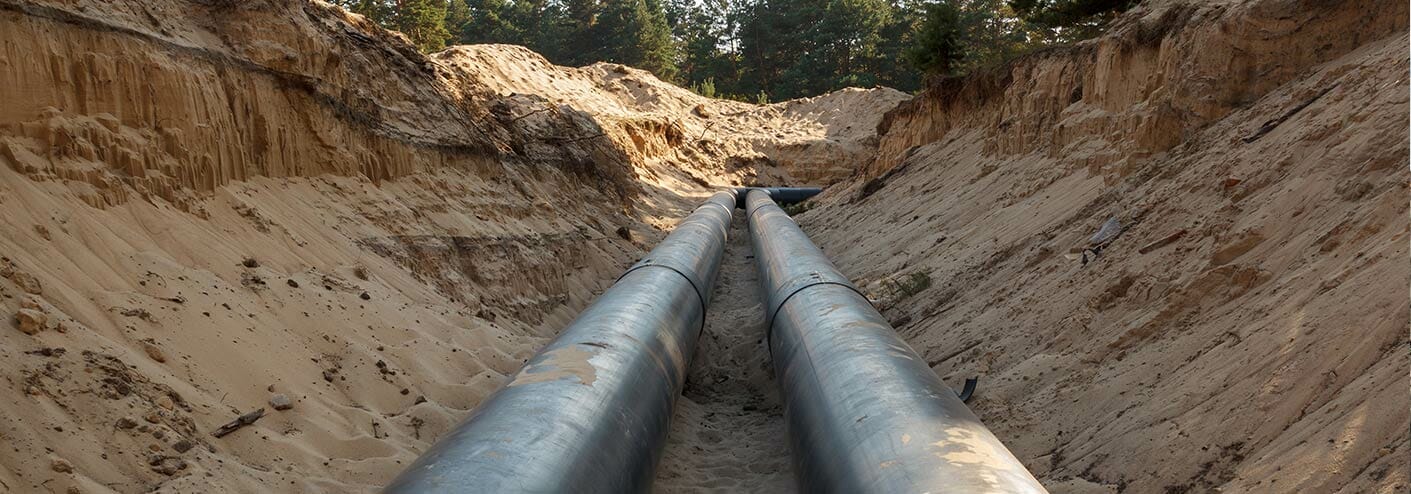Natural Gas Explosion Injury
Across the United States, natural gas is used to heat more than half the homes and to generate 21% of the electricity
The annual volume of consumption is projected to rise to 23.5 trillion cubic feet by the year 2030. Unfortunately, the popularity of this gas comes at a price — obsolete and poorly maintained gas lines and wells can leak, increasing the risk of a serious explosion.
Appliances that may operate on natural gas and experience leaks include:
- Water heaters
- Ovens/stoves
- Dryers
- Furnaces
- Fireplaces
- Outdoor grills
 A complex network of pipelines moves natural gas underground from places that produce it to places that need it. Some pipelines transport natural gas within state boundaries, while others may carry it to the other side of the country.
A complex network of pipelines moves natural gas underground from places that produce it to places that need it. Some pipelines transport natural gas within state boundaries, while others may carry it to the other side of the country.
This dense infrastructure varies in age and oversight, making the possibility of leaks a constant risk. One stray spark and serious property damage, injury or death can occur.
What Can Cause a Gas Leak?
Leaks can be caused by:
- Material/weld/equipment failure
- Improper installation
- Maintenance errors
- Corrosion
- Excavation damage
- Cross boring
- Incorrect operation, such as over-pressurization
- Natural forces, such as earth movement
Severe Injury & Property Damage
Natural gas explosions result most often in serious burn injuries and considerable property damage, as well as wrongful death. The treatment of burn injuries is almost always extensive and may involve plastic surgery, skin grafts, and a lifetime of medical care. At the Johnson Law Firm, we understand the complexity of burn injury cases and we will fight aggressively for the compensation that you deserve.
In the instance of an explosion, you should consult an attorney experienced in these matters, such as our own Billy Johnson who in 2004 successfully represented homeowners in one of Kentucky’s worst natural gas explosions.
Aren’t There Regulations?
In Kentucky, responsibility for the regulation and enforcement of natural gas pipeline safety falls to the Kentucky Public Service Commission (PSC). The PSC must support ways to prevent damage to underground equipment, cooperate in a federal monitoring system, submit reports to the federal government, and help regulate gas companies. One regulation that is now industry-wide is the addition of an odorant called mercaptan, because natural gas is odorless in its usual state. This additive has a distinctive smell (like rotten eggs) to help people detect a gas leak. If an explosion occurs and the gas was not properly odorized, the gas company can be held responsible.
Other signs of a leak include bubbles above a buried gas line after rain and dead vegetation above a line in an area that is otherwise green. If you suspect a natural gas leak:
- Alert others and leave the area immediately.
- Do not call for help from your home phone or cell phone. They can produce a spark that can cause an explosion. Call your gas company or 911 from the safety of a distant location.
- Don’t touch anything that could create a spark – light switches, garage door openers, flashlights, cars, etc. Try to stay away from carpets to avoid static electricity sparks.
- Do not return until the area is declared safe
Legal Investigation & Compensation
 When a natural gas explosion occurs, it is critical that the victims have a lawyer who can respond immediately and begin to investigate before evidence is destroyed. If you or someone you love has been injured due to a natural gas explosion, or if a loved one has been killed by such an event, action must be taken quickly. You need strong representation to protect your rights. Contact the KY natural gas explosion attorneys at the Johnson Law Firm for a free confidential consultation.
When a natural gas explosion occurs, it is critical that the victims have a lawyer who can respond immediately and begin to investigate before evidence is destroyed. If you or someone you love has been injured due to a natural gas explosion, or if a loved one has been killed by such an event, action must be taken quickly. You need strong representation to protect your rights. Contact the KY natural gas explosion attorneys at the Johnson Law Firm for a free confidential consultation.
Call us toll-free at 606-437-4488 or fill out our online contact form.



 William “Billy” Johnson grew up in the Dorton area of Pike County, Kentucky, and early on decided to stay in the beautiful Appalachian mountains. Like many others in Eastern Kentucky, Billy’s dad worked as a coal miner, a hard job but one that taught his son how to meet challenges head on and persevere. Attorney Billy Johnson has years of experience helping injured clients with claims such as car, truck, and motorcycle accidents, wrongful deaths, work injuries, and more. [
William “Billy” Johnson grew up in the Dorton area of Pike County, Kentucky, and early on decided to stay in the beautiful Appalachian mountains. Like many others in Eastern Kentucky, Billy’s dad worked as a coal miner, a hard job but one that taught his son how to meet challenges head on and persevere. Attorney Billy Johnson has years of experience helping injured clients with claims such as car, truck, and motorcycle accidents, wrongful deaths, work injuries, and more. [ 



